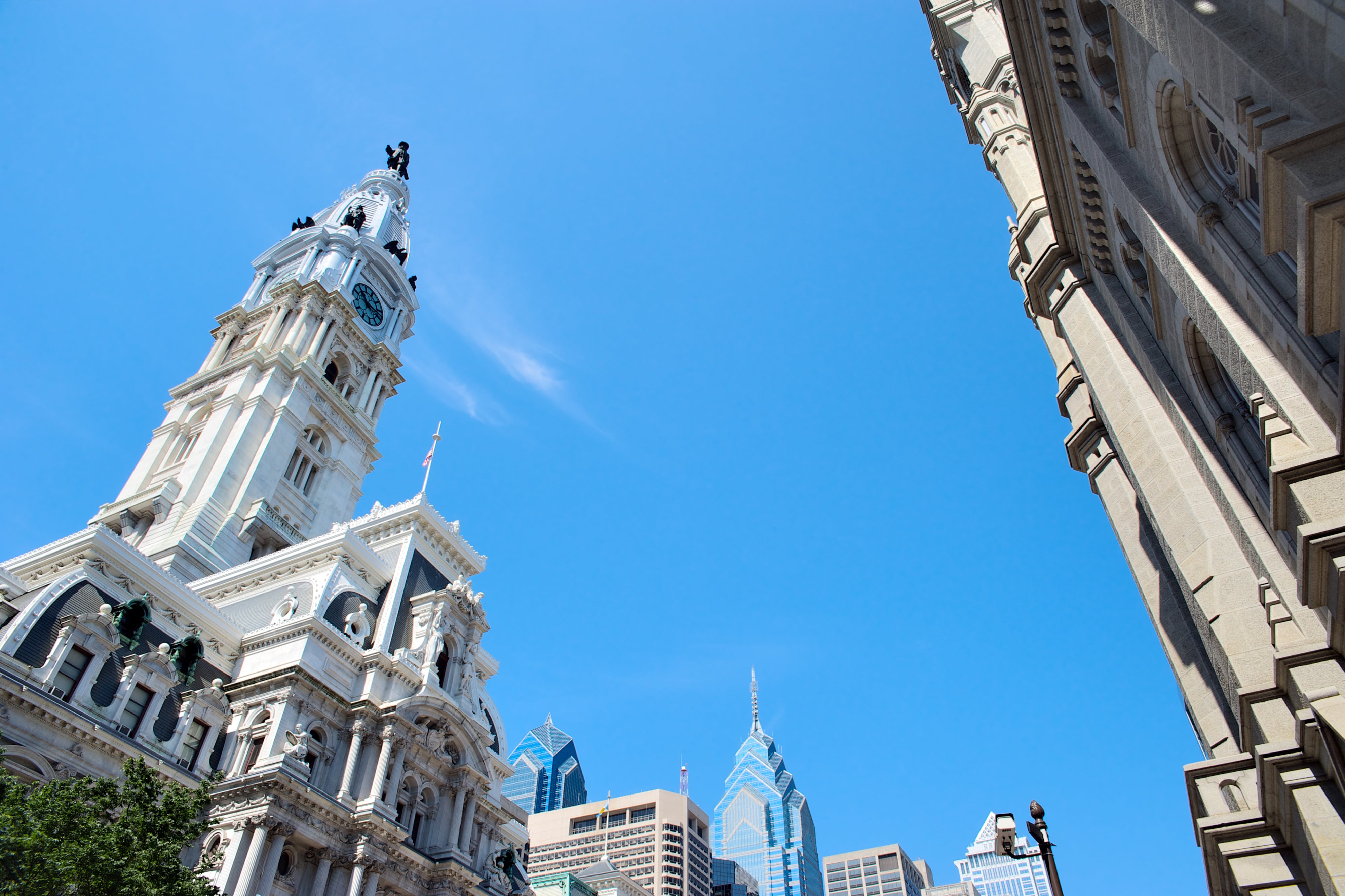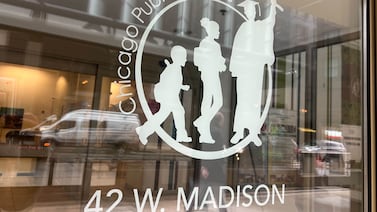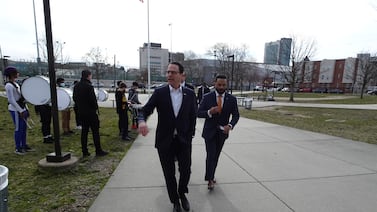Nine candidates are running in the May 16 primary to replace Mayor Jim Kenney — and whoever is elected will have a strong influence over Philadelphia schools.
The mayor has the authority to appoint all nine members of the school board to four-year terms, so could theoretically remake the board from scratch. Along with the City Council, the mayor determines the city’s contribution to the school district’s budget and whether tax hikes are needed to increase that amount.
The issues facing the district right now are daunting. Test scores took a hit during the pandemic. Gun violence and lingering mental health concerns impact student learning. Teacher shortages have grown acute. Questions about how to handle charter schools, especially whether to close those that are underperforming or that engage in practices that raise conflict-of-interest questions, remain a point of contention.
All nine of the candidates are Democrats. In Philadelphia, where 80% of registered voters are Democrats, winning the primary is tantamount to election.
Here’s more about each candidate and what we know about their education records. Please fill out the callout below to let us know what you’d like us to ask each candidate for our upcoming voter guide before the primary.
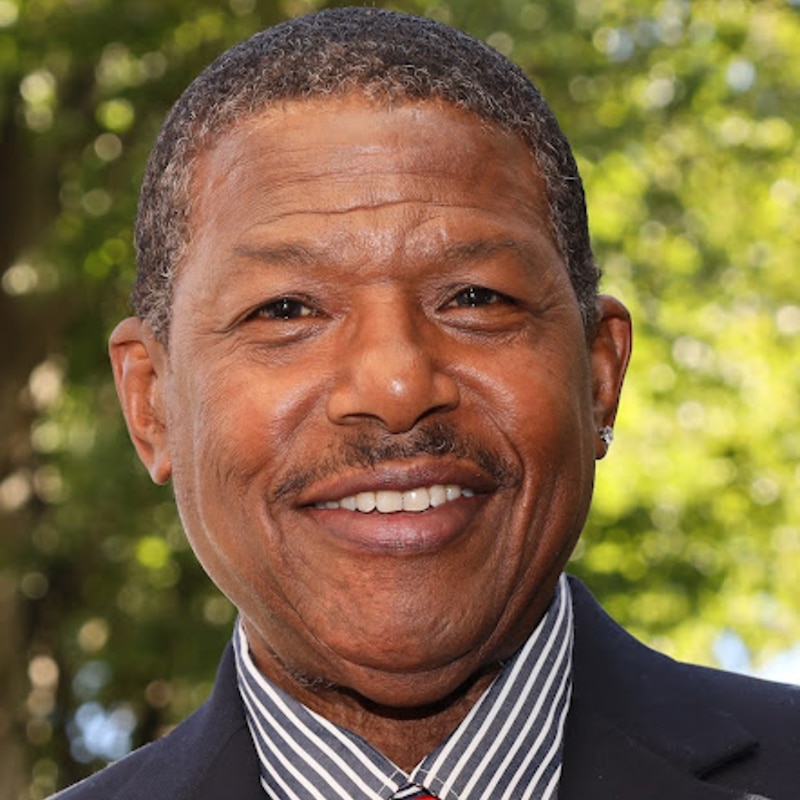
Rev. Warren Bloom Sr.
Rev. Warren Bloom Sr.’s campaign website lists his experience as committeeman, minister, family business owner, musician, and activist. He’s run for office before, including in 2019 for mayor and city commissioner.
Bloom’s website lists “strong public schools” and “excellence for teaching and learning” as two of the issues he is “passionate about and will fight for.” His campaign also has a GoFundMe page that says he has a six-point plan for the city that includes “improving education.”
In 1992, Bloom was convicted of indecent assault, simple assault, and corrupting a minor, according to the news website Billy Penn, citing court records. (He said later that he pleaded no contest to the charges because he didn’t want to put the minor through any more emotional stress.)
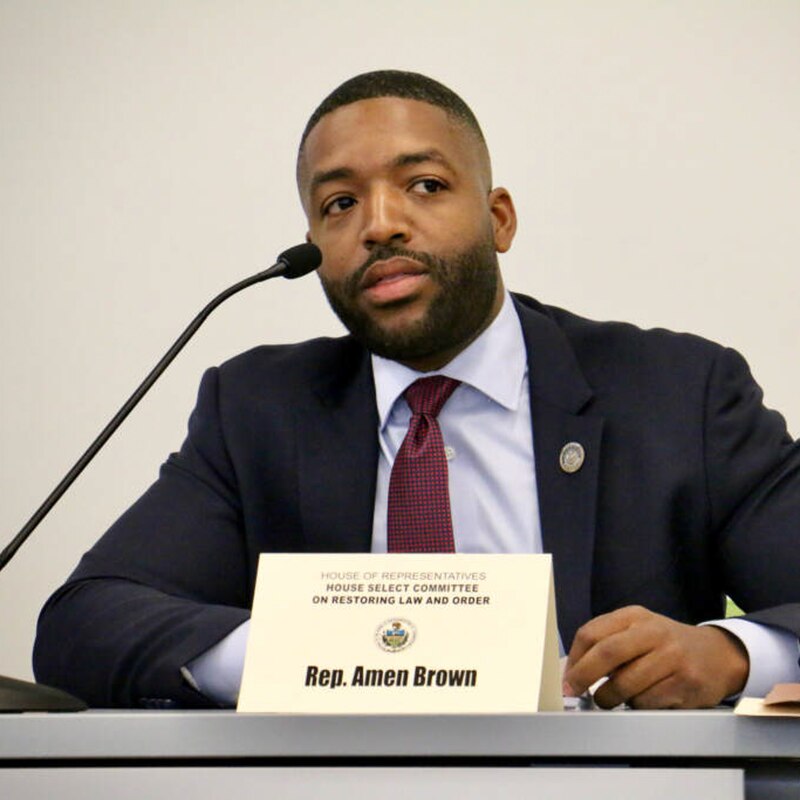
Amen Brown
State Rep. Amen Brown operated day care centers and after-school programs in Philadelphia, where he was born and raised, before being elected to the House in November 2020.
He is a product of the Philadelphia public school system, and attended Community College of Philadelphia after graduating from Overbrook High School.
Brown, whose district includes parts of West Philadelphia, lists funding for education as a legislative priority. He sits on the Aging & Older Adult Services and Urban Affairs committees, as well as the Pennsylvania legislative Black Caucus.
He was the only House Democrat to vote for a bill that would have created an education choice program for students at some low-performing public schools, though he ultimately switched his vote, according to the Philadelphia Inquirer. Brown has also reportedly received campaign contributions from groups linked to Jeffrey Yass, a billionaire and supporter of charter schools.
According to the Inquirer, Brown’s businesses have faced accusations of financial and legal improprieties over the past decade, including thousands of dollars in unpaid taxes racked up by his day care centers.

Jeff Brown
Grocery-store operator Jeff Brown is new to politics. A fourth-generation grocer, he owns and operates 11 ShopRite stores in historically underserved Philadelphia neighborhoods. Brown said he opened the stores in these “food deserts” as a way of addressing poverty.
Brown told the Inquirer he wants to shake up “the City Hall establishment,” which he said was “nonresponsive” to the city’s problems.
On his campaign website, Brown says the “lack of equity” in city public schools is a critical issue for Philadelphia.
“Parents should not have to leave the city to find quality public education for their children,” Brown says on his website. “And they shouldn’t have to fight for the few slots in magnet schools.”
Brown is also appealing to unions by touting his experience negotiating with ShopRite unions and pledging to address staffing issues in the city’s workforce, including police. He has been endorsed by the city’s largest union, AFSCME District Council 33, as well as the union representing transit workers. A United Food and Commercial Workers local official endorsed him at his campaign launch.

James DeLeon
James DeLeon was a Philadelphia Municipal Court judge for 34 years. His volunteer experience includes working with kids as a swimming teacher, track and field official, debate coach, and Police Athletic League board member.
DeLeon hasn’t put forward an education platform, though his plan to address gun violence includes establishing a system to coordinate city resources and address the “root causes” of the problem, including gathering input from the school district.

Allan Domb
Real estate developer and former City Council member Allan Domb has cited the need for financial literacy classes and investment in schools.
Domb owns more than 400 properties in Philadelphia worth more than $400 million, according to the Inquirer. As a council member, he focused on fiscal issues including business tax cuts and tax refunds for low-income workers, and campaigned on a promise to fund city schools by collecting taxes from out-of-state property owners, according to Billy Penn.
Domb’s campaign website includes a “10-point action plan on public safety” listing actions he’d take in his first 100 days in office. Those range from declaring a “crime emergency” and tripling funding for police officer recruitment, to installing cameras in every high school and working with school leaders.
Domb resigned his City Council seat to run for mayor, and has said that if elected he would avoid conflicts of interest with his real estate investments.

Derek Green
A Mount Airy resident, Green is a former prosecutor and served in the city attorney’s office (as well as an assistant deputy attorney general for the state of Delaware). He was elected to be an at-large member of Philadelphia City Council in 2015. Earlier in his career, he had worked as a council staffer for Marian Tasco, who represented the 9th District.
On education, he said he draws on his personal and legislative experience. Green’s mother taught for 31 years in the school district and he often describes himself as “a teacher’s kid.”
Green has a son on the autism spectrum. Green said their neighborhood public school developed a robust special education program partly due to advocacy by him and his wife. The school now has several autism support classes.
Both his mother and his son were affected by asbestos exposure, he said, and he sponsored legislation that updated the city code on asbestos inspections and remediation in school buildings. In an interview with Chalkbeat, he said that he is still concerned about the district’s efforts in that area. He said he would appoint Board of Education members who have personal experience with the district and will “listen to parents, guardians, and caregivers” about their day-to-day concerns — from building safety to curriculum development to whether school buses run on time.
He said the major issue in the mayoral race, public safety, is tied to education, citing shootings and other incidents involving students in or near school buildings. About these and other issues, growing homelessness among young people, he said, “we could be using schools more effectively to address” them. He suggested the city and district should work more closely on bringing behavioral health services to students and on other programs directed to youth.
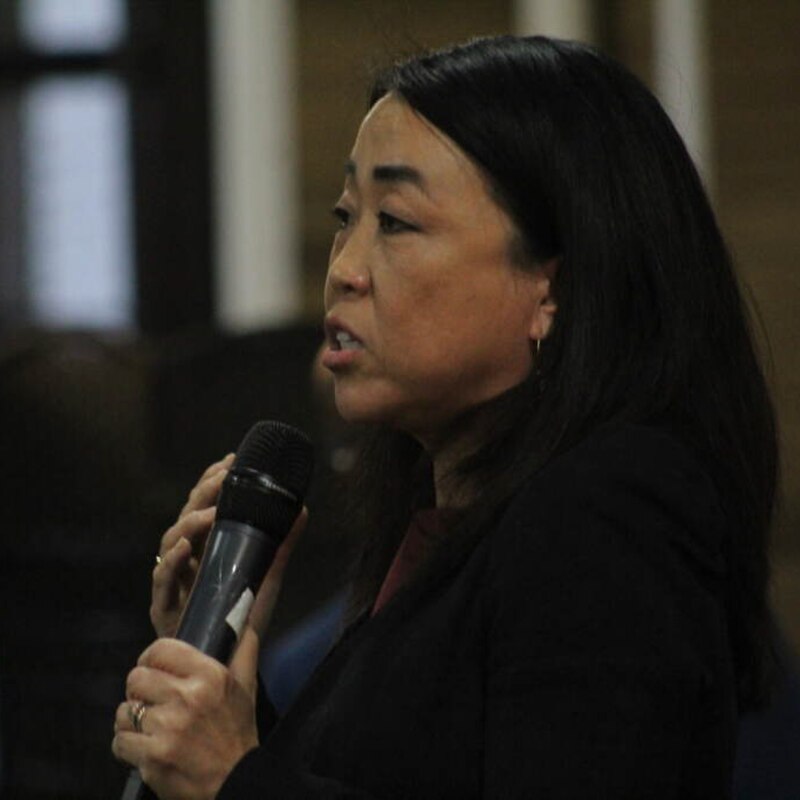
Helen Gym
Gym launched her public career as an activist and organizer, and has been a prominent watchdog of the school district and its leadership for nearly three decades.
Gym once worked as a teacher at the Lowell Elementary School in Olney. A mother of three, she helped found the Public School Notebook in 1994, which reported on the district from a community perspective (and which in 2020 became the Philadelphia bureau of Chalkbeat).
Her public profile grew with her resistance to the state takeover of the district in 2002. Gym cofounded Parents United for Public Education in 2006, and became a fixture in city politics by challenging School Reform Commission members at their meetings. She lambasted the commission and district administration for eliminating nurses and counselors during a budget crunch, and for canceling the teachers contract. And she went to Harrisburg to protest for more education funding.
The Philadelphia Federation of Teachers has endorsed her in the race. So has the left-leaning Working Families Party, which helped propel her and fellow progressive Kendra Brooks to their council seats.
She was a leading backer of returning the district to local control. She’s also been outspoken about the district’s asbestos abatement efforts and response to other environmental hazards in schools. As a council member, she successfully pushed legislation requiring the district to eliminate water fountains and install lead-filtering hydration stations in all schools by 2025.
Gym is an opponent of how charter schools are funded under state law, and opposes the ability of charters that are run by for-profit entities to operate in Pennsylvania. She is a co-founder of Folk Arts Cultural Treasures Charter School (FACTS) in Chinatown, run by the non-profit Asian Americans United.
Gym won an at-large seat on the City Council in 2015 and was re-elected in 2019. She has been a vocal opponent of various development proposals in or near Chinatown.
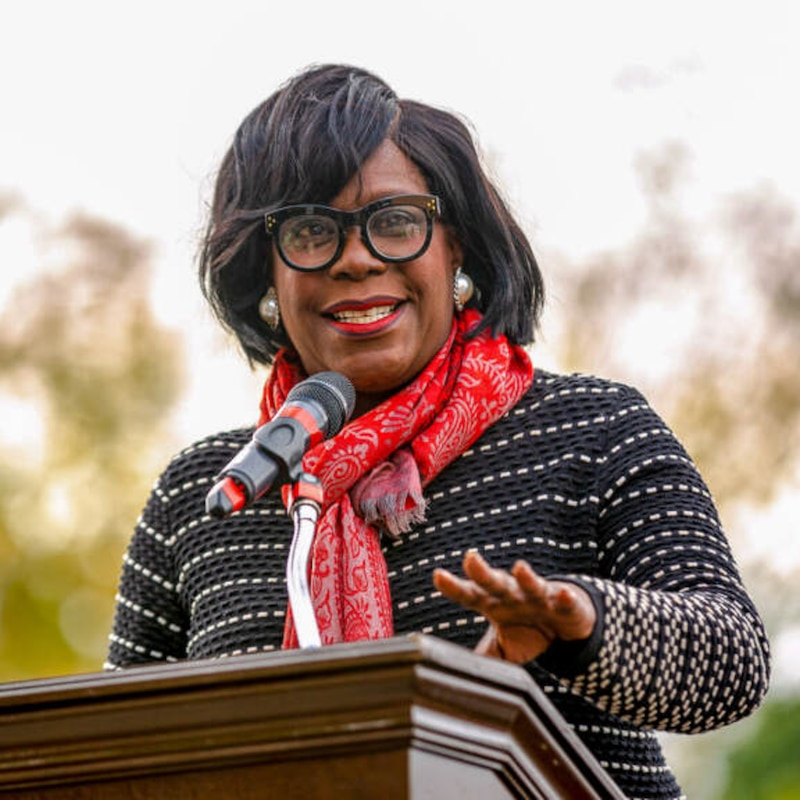
Cherelle Parker
Cherelle Parker was born to a teenage single mother and was largely raised by her grandparents in the Mount Airy section of Philadelphia. She attended Philadelphia public schools, and came to the attention of 9th District city council member Marian Tasco when she won a high school oratory contest. She interned in Tasco’s office.
In 2015, she was elected to succeed Tasco in the 9th District in the northwest part of the city. Before that, she spent 10 years in the General Assembly, in 2005 becoming the youngest African American woman elected to that body.
Parker’s first job out of college was as a high school English teacher, and she has also taught English as a second language to adults. In her campaign materials, she talks about bridging the wealth divide in Philadelphia, the nation’s poorest big city, and “building a first class modern education system.” She has advocated for more funds for education from both the city and the state. In Harrisburg, she sponsored legislation that allowed Philadelphia to enact a $2-a-pack cigarette tax to raise money for Philadelphia schools.
Her campaign spokesperson said she would release more detailed proposals on education in February.
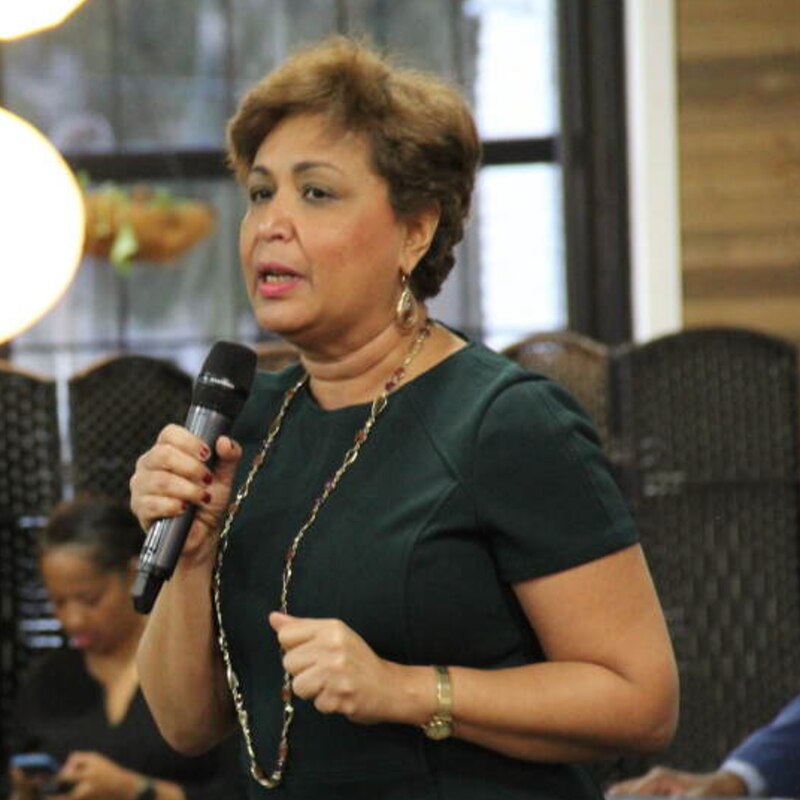
Maria Quiñones-Sánchez
Maria Quiñones-Sánchez is a self-described “pragmatic progressive” who began her political involvement in high school. Born in Puerto Rico, she moved with her family to Philadelphia at 6 months old and was raised in public housing primarily by her mother, who worked in a factory.
In 2007, she became the first Puerto Rican woman elected to the City Council. During her term, she chaired the education committee and the committee on appropriations. She fought for more school funding and was active during the height of the COVID pandemic in getting school buildings opened as hubs for community resources. She also lobbied to create the School Building Authority to help the superintendent and board assess the district’s construction and maintenance needs, and urged an overhaul of the district’s school feeder patterns to better reflect changing neighborhoods, among other initiatives.
In outlining a detailed education vision for 2030, Quiñones-Sánchez calls for a review of the city’s early education services, which includes public and private options, and wants to make Community College of Philadelphia free to all students.
She founded the city’s first bilingual charter school, Eugenio Maria de Hostos.
As a student, Quiñones-Sánchez attended Girls High School and Jules E. Mastbaum High School in Philadelphia, where she joined ASPIRA, an advocacy group focusing the education and development of Latinx youth.
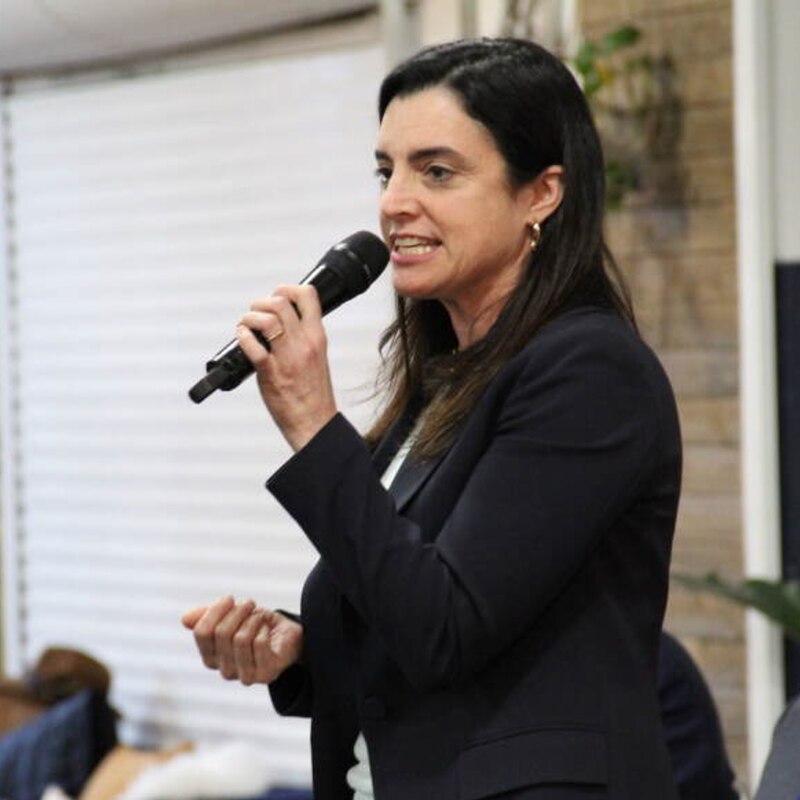
Rebecca Rhynhart
Rhynhart won an upset victory five years ago over Alan Butkovitz to claim the city controller’s job, becoming the first woman in that position. She ran as an outsider and a reformer bucking the Democratic machine. Her TV ads promised to clean up an inefficient and corrupt government. She easily won re-election in 2021.
The school district is independent from the city government, so as controller she had no power to audit or investigate it. But in her campaign materials, she says that one of her priorities as mayor would be “urgently fixing our public schools to give all students a real chance at meeting their potential,” along with improving blighted neighborhoods and strengthening anti-violence initiatives.
As the city’s fiscal watchdog, Rhynhart audited the police department, and released reports critical of the prison system and of city accounting practices.
Previously, she was budget director and city treasurer under former Mayor Michael Nutter. She was chief administrative officer in the Kenney administration for less than a year before resigning last October to run for mayor. Former Mayor John Street has endorsed her, saying that she understands city government and is best equipped to improve services.
Rhynhart has a daughter who attends a Philadelphia public school.
Dale Mezzacappa is a senior writer for Chalkbeat Philadelphia, where she covers K-12 schools and early childhood education in Philadelphia. Contact Dale at dmezzacappa@chalkbeat.org.


